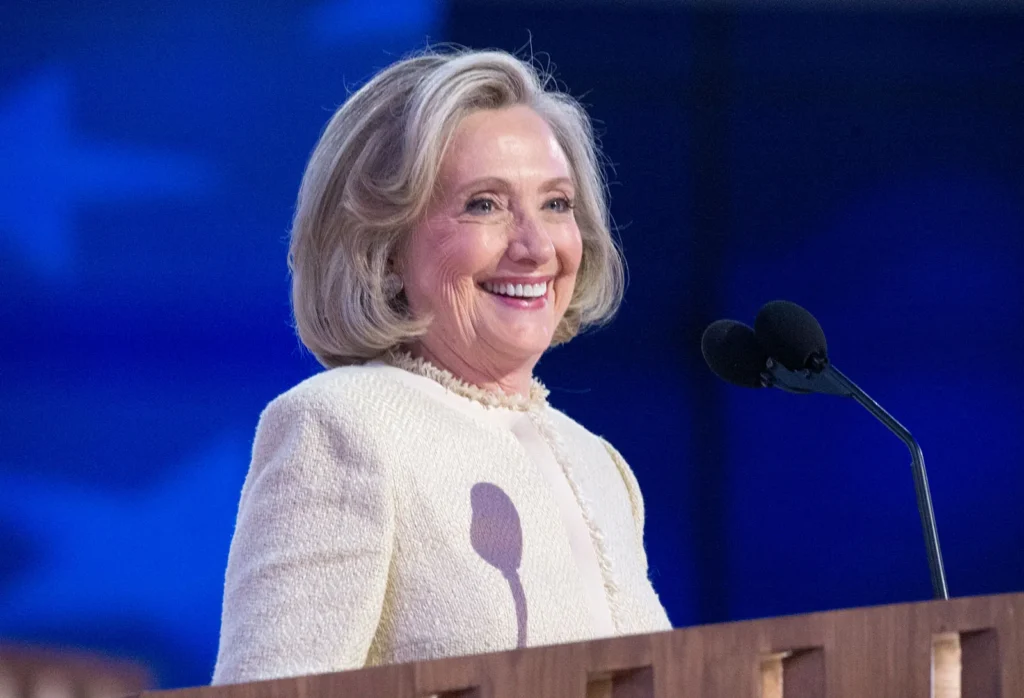Hillary Clinton remains one of the most recognized and influential figures in American political history. Born on October 26, 1947, in Chicago, Illinois, she grew up in a middle-class household and pursued a strong academic path. After graduating from Wellesley College with a degree in political science, she earned her law degree from Yale Law School, where she met her future husband, Bill Clinton.
Before entering the national spotlight, Hillary Clinton worked for the Children’s Defense Fund and later served as a staff attorney during the Watergate scandal. She went on to become First Lady of Arkansas when Bill Clinton served as governor and worked as a partner at the Rose Law Firm, where she established herself as a leading female attorney in the South.
In 1993, Hillary Clinton became First Lady of the United States when her husband was elected president. She played an active role in policy development, especially in health care and children’s welfare. One of her notable efforts was helping to create the Children’s Health Insurance Program (CHIP), which provided health coverage to millions of American children. Her 1995 speech at the UN Conference on Women in Beijing gained international acclaim with the declaration that “women’s rights are human rights.”
Following her time in the White House, Clinton ran for the U.S. Senate and became the first female senator from New York in 2001. During her two terms in the Senate, she served on committees that focused on the armed forces, health, education, and environmental issues. Although she voted in favor of the Iraq War in 2002, a decision that drew criticism, she later expressed regret for that choice.
In 2008, Hillary Clinton made her first run for the presidency but lost the Democratic nomination to Barack Obama. After his election, she accepted the role of Secretary of State in his administration. From 2009 to 2013, she managed U.S. diplomatic relations during a critical time in global politics, including the Arab Spring. She supported human rights initiatives, pushed for international cooperation, and introduced the concept of “smart power” to diplomacy. Her leadership was tested by the 2012 attack on the U.S. diplomatic compound in Benghazi, Libya, which led to numerous investigations and intense political scrutiny.
In 2016, Hillary Clinton made history by becoming the first woman nominated for president by a major political party. Her campaign emphasized progressive issues such as gender equality, affordable health care, and clean energy. Though she won the popular vote by nearly 3 million, she lost the Electoral College to Donald Trump. A significant controversy during her campaign involved the use of a private email server during her time as Secretary of State. Despite multiple investigations, no criminal charges were filed, but the issue damaged public trust during a crucial period in her candidacy.
After the election, Clinton remained active in public life. She authored books, including the 2017 memoir “What Happened,” reflecting on the election. She also launched a podcast called “You and Me Both,” where she discussed political and social issues. Clinton continues to speak out on democracy, women’s rights, and global stability, maintaining a strong voice in the Democratic Party.
Despite being a polarizing figure, Hillary Clinton is praised for her resilience, experience, and long-standing commitment to public service. Her name recognition remains high, and she is often cited as a role model for women in leadership. While some Americans see her as a symbol of political establishment, others view her as a groundbreaking figure who challenged gender norms and opened doors for future generations.
Hillary Clinton’s legacy is deeply woven into the fabric of modern American history. From her early legal work to her groundbreaking presidential run, she has shaped political discourse in the United States for over four decades and continues to influence debates on leadership, policy, and equality.







